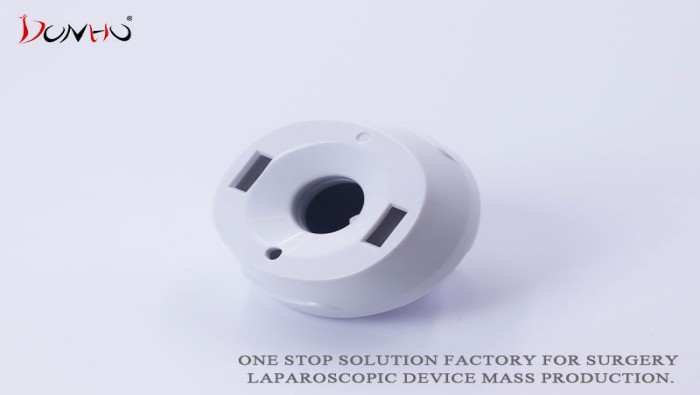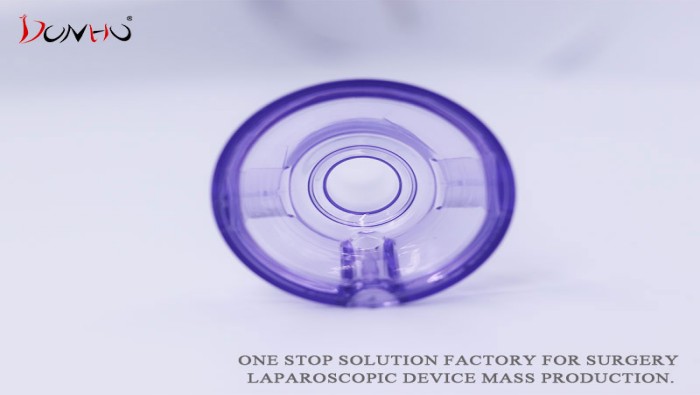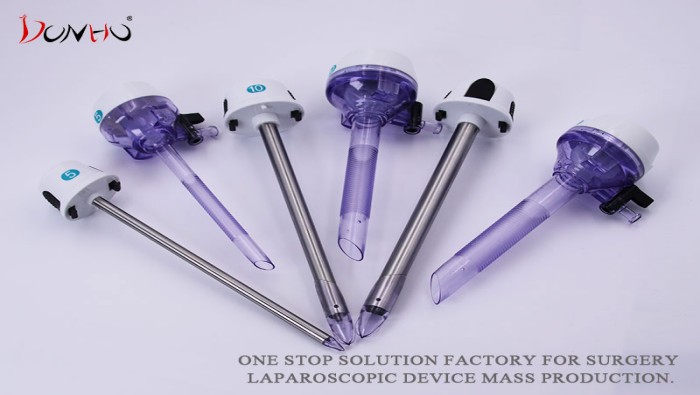

In the development and production of single-use laparoscopic trocars, the selection of polymer materials is crucial. Such materials not only need to meet the basic requirements of clinical use, but also take into account the stability and economy of mass production. The following is a detailed description of the key factors in the selection of polymer materials and their impact on the stability of mass production from the aspects of material performance, processing characteristics, cost control and so on.

I. Material Performance Requirements
1. Biocompatibility
The biocompatibility of polymer materials is the primary consideration. Laparoscopic trocars are in direct contact with human tissue and body fluids, so the material must have good biocompatibility to avoid allergies, inflammation or other adverse reactions.
Standard requirements: Materials need to pass the ISO 10993 series of tests, including cytotoxicity, sensitization, acute systemic toxicity and so on.
Commonly used materials: polypropylene (PP), polycarbonate (PC), polyethersulfone (PES), etc. These materials have good biocompatibility.
Impact on mass production stability:
If the material does not pass the biocompatibility test, it will lead to product recall or production stoppage, which will seriously affect the production stability. Therefore, material selection should strictly follow the relevant regulatory requirements.
2. Mechanical properties
Trocar puncture devices need to withstand certain mechanical loads, including insertion force, extraction force, and bending or torsion force that may be applied during the procedure. Therefore, the mechanical properties of the material are of paramount importance.
Strength and stiffness: The material must have sufficient tensile and flexural strength to ensure that the product is not easily broken or deformed during use.
Fatigue resistance: the material needs to maintain stable performance under repeated use or stress to avoid product failure due to fatigue.
Toughness and elasticity: the material needs to have the right amount of toughness to adapt to the anatomical differences of patients with different body types.
Impact on mass production stability:
Fluctuations in the mechanical properties of the material can lead to unstable product quality, e.g. certain batches may fracture or deform during use, thus increasing after-sales risks and production costs.
3. Thermal properties and chemical stability
In laparoscopic surgery, trocars may be exposed to autoclave sterilization or low-temperature storage. Therefore, the thermal properties and chemical stability of the material need to meet the following requirements:
Thermal stability: the material needs to remain stable during autoclaving (e.g. steam sterilization, ethylene oxide sterilization) to avoid degradation or deformation.
Chemical stability: The material needs to resist attack by sterilizers, lubricants, or other chemicals to avoid chemical reactions that could lead to product failure.
Impact on mass production stability:
Inadequate thermal and chemical stability of the material may lead to quality problems during sterilization or storage, which may affect the market reputation and production plans.

II. Processing Properties
1. Molding processing properties
Cannulae are usually manufactured by injection molding or extrusion molding process, so the processing performance of the material directly affects the geometric accuracy and surface quality of the product.
Flowability: The material needs to have good flowability in order to fill the complex structure of the mold and avoid product defects (e.g. bubbles, missing material) caused by insufficient flowability.
Shrinkage: The shrinkage of the material needs to be stable and controllable to ensure the dimensional consistency of the product.
Thermal stability: the material needs to remain stable during high temperature processing to avoid product quality problems caused by degradation or cross-linking.
Impact on mass production stability:
Fluctuations in material fluidity or shrinkage can lead to dimensional deviations, increase scrap rates and affect production efficiency.
2. Surface Modification and Functionality
The surface of trocars may require functional modifications, such as lubricating coatings, antimicrobial coatings, etc., to enhance the clinical experience.
Surface affinity: The material should have good adhesion of the coating to ensure that the functional modification layer does not come off during use.
Modifiability: The material should support a variety of surface treatment processes (e.g., spraying, plating, laser etching, etc.) to meet different clinical needs.
Impact on mass production stability:
Insufficient modifiability of the material will lead to easy shedding of the functional coating, affecting product quality and market competitiveness.

III. Cost Control
1. Material price
The price of polymer materials directly affects the production cost of the product. Under the premise of ensuring performance, we need to choose the most cost-effective material.
Alternative materials: Explore alternative materials with lower costs (such as modified polypropylene) to reduce procurement costs while meeting performance requirements.
Supply Chain Stability: Consider the stability of material supply when selecting suppliers to avoid production interruptions due to raw material shortages.
Impact on mass production stability:
Fluctuating material prices or unstable supply chain can lead to increased production costs.
+86 18361958211
marketing@cndonho.com
+86 18361958211
No.2 Zhiwei Road, Qiandeng Town, Kunshan City, Jiangsu Province, China




